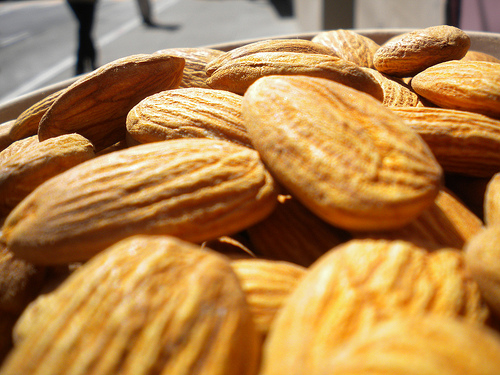Eating nuts for health
Nuts sometimes get a bad rap for being calorically dense and high in fat and salt. Not to state the obvious, but that's why they are delicious! And while it's true that you should keep your nut consumption down, nuts are a lot better for you than most of the alternatives we reach for. When you get a craving for something salty and crunchy, nuts are a far better choice than, say, a bag of Cheetos. Nuts are a great non-animal source of protein,
First, understand that it is easy to overeat on nuts. One serving of almonds is an ounce, or ¼ cup, or approximately 32 almonds. For smart snacking, measure out the nuts into a separate container and then put the main container away before you start eating. Don't just plunk yourself down on the couch with a can of Blue Diamond Smokehouse Almonds, or you will eat the whole thing before you know it. (I will, anyway.)
Second, be aware that not all nuts are created equal. A variety of nuts is best for your health, since they all contain different micronutrients. Almonds are considered the healthiest nuts, with as much calcium as an equivalent amount of milk, plus a powerhouse boost of vitamin E, manganese, riboflavin, and magnesium. Cashews, pistachios and walnuts are the next best nutritional choices. Peanuts, sunflower seeds, and macadamia nuts are all higher in fat for the same amount of nutrition, so probably not the best choice.
And finally, choose your nuts wisely. Plain raw almonds are a lot better for you than the aforementioned Smokehouse Almonds, which have crazy amounts of added fat and salt. A handful of plain raw almonds in a baggie is a great portable, no-mess, eat-it-on-your-commute breakfast, too. Far better for you than a bagel or a pastry! Look for lower-fat and more lightly salted varieties, for optimal snacking.
Image courtesy of Flickr/HealthAliciousNess
